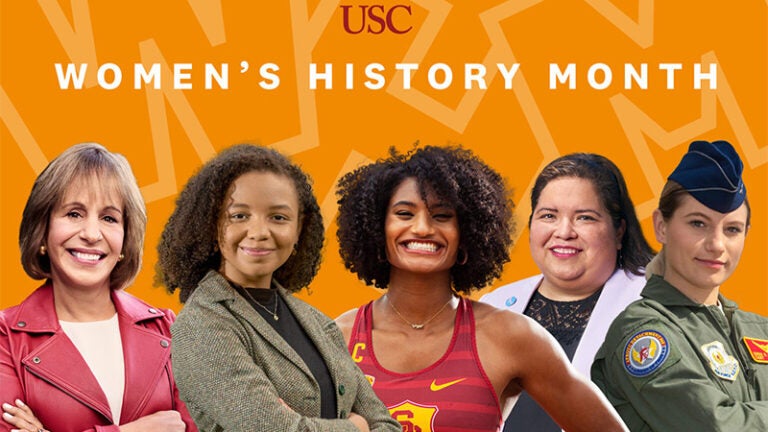
For Women’s History Month, USC researchers reflect on women’s achievements and challenges
Since 1987, Congress has designated March as Women’s History Month, a time to commemorate and recognize the key role of women in American history — and to encourage the study, observance and celebration of that history.
During Women’s History Month and beyond, USC experts highlight the continuing struggle for women’s equal rights and the legacy of the trailblazing women who have transcended gender barriers to contribute to a more perfect — and equal — union.
Women’s history offers a lesson in what progress looks like
“The COVID-19 pandemic has disproportionally affected women — at home and in their jobs — and it has affected their health,” said Parveen Parmar, associate professor of clinical emergency medicine, chief of the Division of Global Emergency Medicine and director of the Center for Gender Equity in Medicine and Science at the Keck School of Medicine of USC. “Women’s History Month reminds us that women have made great progress despite so many challenges.”
But Karen Tongson notes that progress isn’t measured in a straight line. The professor of English, gender and sexuality studies, and American studies and ethnicity and chair of the Department of Gender and Sexuality Studies at the USC Dornsife College of Letters, Arts and Sciences said one thing she has learned from her research is “things don’t consistently get better.”
Tongson cites the example of reproductive health freedoms, which expanded in the 1970s only to now face challenges as state legislatures propose more restrictions and the U.S. Supreme Court appears poised to strike down Roe v Wade.
“Part of what we learn is how to move through these different cycles of change and transformation and how to keep the momentum going, even when sometimes the task can feel Sisyphean,” she said. “We need to celebrate these achievements and ‘firsts’ because there’s always going to be more work to do.”
The next frontier of the women’s movement: Valuing care work
“Reflecting on Women’s History Month, it is clear the women’s movement has been successful in terms of freeing women to move from the domestic sphere into public life,” said Darby Saxbe, associate professor of psychology and director of the USC Dornsife Center for the Changing Family.
Compared with 50 years ago, she said, there has been a staggering shift in terms of women’s participation in the workforce. But she believes there have been some unintended consequences, including neglecting the work of caring for others.
“Our individualistic society has always undervalued care labor, and the monumental amount of unpaid care labor that women have done historically has been undercompensated and overlooked,” she said.
The next frontier of the women’s movement, said Saxbe, should be valuing such traditionally feminine pursuits with better pay for caring professions and policies like parental leave. It would include a shift away from focusing on what women should do differently, to a closer look at how men are contributing to both work and home life.
Women are changing military culture
Women’s History Month shines a light on how women continue to break barriers in previously male-dominated professions, including in the military. In 1973, when military conscription ended, women constituted 2% of the active-duty military. Women now represent 16% of the active-duty military.
“In my recent research on U.S. military veterans’ peace organizations, I witnessed a younger cohort of women — many of them women of color, some queer-identified — emerging as leaders,” said Michael Messner, professor of sociology and gender studies at USC Dornsife.
Messner’s research found women veterans had experienced trauma from sexual and gender harassment, sexual assault and racist and homophobic abuse during their military service — some of it while serving in combat zones.
They used these experiences to transform the veterans’ peace movement, “linking anti-militarist work with movements for racial justice, stopping gender and sexual violence, addressing climate change, and building anti-colonial coalitions,” said Messner, author of Unconventional Combat: Intersectional Action in the Veterans’ Peace Movement (Oxford University Press, 2021).
“Through this work, they bend the arc of history toward peace and social justice,” he added.
What history do we want to make?
“Women’s History Month shows us the different sacrifices our forebears have made,” said Tongson. “They’ve managed to transform worlds and cultures that were often hostile to them. We can use that example to fortify our efforts to change and transform our roles and to make things better — to make what seemed impossible, achievable.”